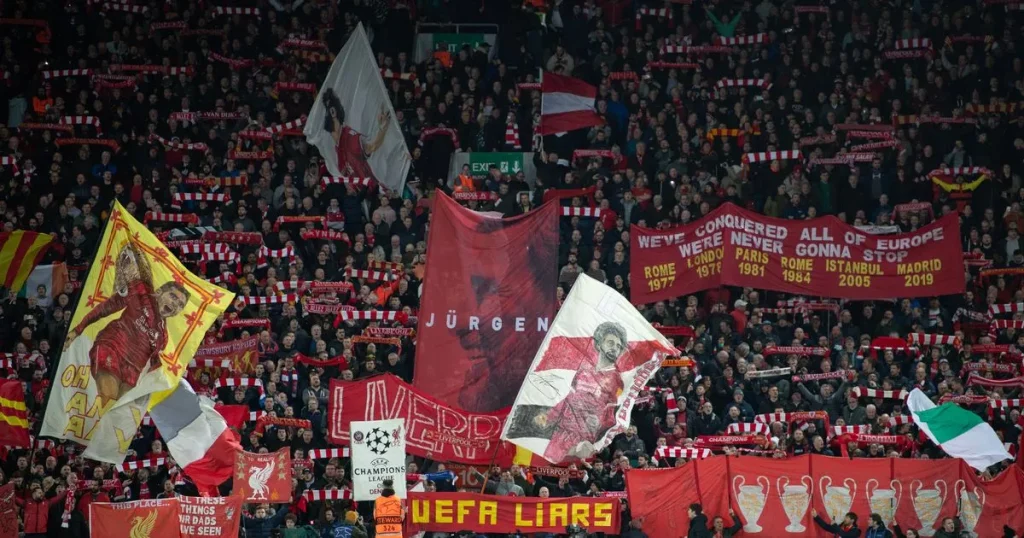Liverpool Football Club recently announced an increase in ticket prices for the upcoming season, citing operational costs as the reason behind the decision. This move has sparked outrage among fans, with groups like Spion Kop 1906 planning a protest by not displaying any flags on the Kop during the Europa League quarter-final clash against Atalanta. While Liverpool’s two percent rise in prices over two years may seem modest compared to other top clubs like Arsenal and Manchester United, fans are unhappy with the continual increases given the club’s financial success.
Spion Kop 1906, responsible for organizing the flags and banners that adorn the Kop on match days, expressed their disappointment in the club’s decision to raise prices for the 2024/25 season. In response to this decision, they have decided to withhold the display of flags from the stadium during the Europa League match. However, they will pay tribute to the 97 victims of the Hillsborough disaster with dedicated flags during the weekend Premier League match against Crystal Palace. The group emphasizes the need for positive dialogue between the club and fan groups to address concerns regarding ticket prices.
Spirit of Shankly, another supporters’ organization, also voiced their opposition to Liverpool’s ticket price increases. Despite the club’s significant commercial revenue and sixth position in the global rankings of wealthy football clubs, they find the decision unjustifiable. This is not the first time fans have protested against ticket price hikes, with Spion Kop 1906 and Spirit of Shankly staging a walkout in 2016 in response to the club’s decision to raise ticket costs. The demonstration involved thousands of supporters leaving the stadium during a match against Sunderland in the 77th minute.
Supporters express their discontent with the club’s pricing policies through various means, including banners and statements at matches and on social media. Liverpool’s rich history and passionate fan base make the club’s pricing decisions a contentious issue, with fans feeling that they are being asked to shoulder an unfair financial burden, especially in the current economic climate. The lack of flags on the Kop during the Atalanta match sends a strong message to the club about the fans’ unity and determination to resist what they perceive as unjustifiable increases in ticket prices.
The broader context of rising ticket prices in football and increasing commercialization of the sport adds complexity to the issue. While clubs rely on ticket sales as a significant revenue stream, they must balance financial sustainability with the need to keep matches accessible and affordable for loyal supporters. The tension between clubs’ financial interests and fans’ demands for fair pricing structures continues to be a source of conflict in modern football. As fans assert their voice and push for dialogue with club officials, the Liverpool ticket price protest serves as a reminder of the enduring power of supporters’ activism in shaping the future of the game.


